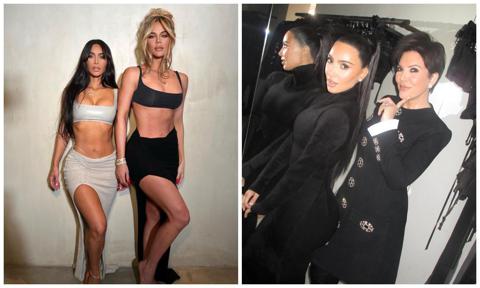
Legislation is being proposed by the French government, which would mandate influencers to label content that has been edited with filters or retouching, and prohibit them from promoting plastic surgery as part of paid partnerships.
Nous rendrons obligatoire le fait d’afficher l’utilisation d’un filtre ou d’une retouche sur les contenus photos et vidéos lors d'un partenariat rémunéré.
— Bruno Le Maire (@BrunoLeMaire) March 24, 2023
Nous le faisons pour limiter les effets psychologiques destructeurs de ces pratiques pour l’estime des internautes.
In a tweet posted on March 24, France’s Finance Minister Bruno Le Maire explained that enacting such a law would help “limit the destructive psychological effects of [filters and retouching] on internet users’ self esteem.” The country’s National Assembly is currently discussing the measure, as well as plans to launch a dedicated team within the Directorate General for Consumer Affairs, Competition and Fraud Prevention to regulate influencers.
Breaches of the strict regulations, proposed by French Finance Minister Bruno Le Maire, could result in up to two years of jail and $32,515 (€30,000) in fines. Even worse (for them), offending influencers who are found guilty will not be allowed to use social media or continue their careers on the platforms.
Le Maire said there would be a “zero-tolerance approach” to anyone who does not respect the rules, which will be debated by France’s National Assembly from today.
In a press release, he said the country is the first European nation to create a comprehensive framework for regulating the influencer sector—with the law holding to account all French influencers, as well as those who live abroad but earn money from sponsoring products sold in France.
Le Maire shared that the regulations were not a “fight” against influencers or a way to stigmatise them, but were a system to protect both them and consumers. “Influencers must be subject to the same rules as those that apply to traditional media,” he said, saying the internet “is not the Wild West”.
This isn’t the first time France has sought to increase transparency in media and advertising. Back in 2017, the country passed a law that required images of models who had their bodies altered through Photoshop or other means to include a disclaimer stating “retouched photograph.”
The idea came courtesy of France’s former health minister Marisol Touraine, who said at the time it was important to avoid the promotion of “inaccessible beauty ideals and to prevent anorexia among young people.”
Six years later, the conversation regarding retouching and other types of digital manipulation has resurfaced due to the abundance of face-altering filters available on social media platforms. For instance, TikTok’s Bold Glamour filter has triggered discussions on the damaging impact these eerily realistic digital effects can have on our mental well-being and self-confidence.
While there’s not a lot of research (not yet, at least) indicating that beauty filters such as Bold Glamour negatively impact adults’ mental health, it is evident that excessive social media usage, and the constant exposure to edited images that comes with endless scrolling on platforms like Instagram and TikTok, is associated with negative body image in teenage girls.
Despite France’s good intentions, the proposed legislation requiring influencers to disclose filters and retouching may not have the intended impact. Research suggests that labelling manipulated photos and videos does not necessarily reduce viewers’ desire to emulate the unrealistic beauty standards portrayed in those images. In fact, a study conducted by the University of Flinders in 2019 found that exposure to images accompanied by retouching disclaimers increased women’s dissatisfaction with their own bodies.
In essence, labelling manipulated images does not improve people’s self-esteem.
The prevalence of filters and retouching on social media raises a challenging question: why do people feel the need to use them in the first place? While I am not an expert, it appears to be linked to societal pressures to conform to conventional beauty standards.
However, our perception of beauty is so deeply ingrained in culture that challenging it is a complex and challenging task. Beauty standards and their associated racist and misogynistic elements are a systemic problem. Therefore, France is right to propose legislation aimed at providing a systemic solution to this issue. Unfortunately, research suggests that regulating influencers and their use of filters and retouching is unlikely to be an effective solution. Therefore, it may be necessary to reevaluate and develop alternative approaches.
- Quick links
- Social Media
- France
- beauty influencers






